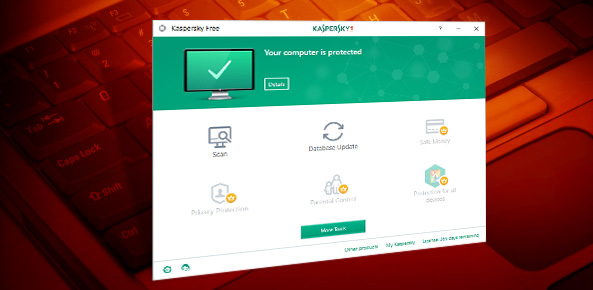After testing a pilot version in Russia, China, and Nordic countries last year, the Russia-based cybersecurity firm Kaspersky Labs said Tuesday it will begin a global rollout of its free antivirus product.
Timed to coincide with the company’s 20th anniversary today, the launch of Kaspersky Free will begin this month and next across the U.S., Canada, the Caribbean and a large swath of the Asia-Pacific region. The software will become available in other parts of the world — including the Middle East, Africa, the UK, Germany, France, Japan and South Korea — in phases through late October.
By then, “the whole planet” will be covered, founder/CEO Eugene Kaspersky said in a blog post yesterday. However, while the basic version is free to the masses, most individuals and certainly enterprises will be better off running more sophisticated antivirus software.
Although the free version won’t compete with the company’s paid antivirus products, Kaspersky Free will cover “all the bare essentials,” with protections for files, email and the Web, along with automatic updates, Kaspersky said. Users in the U.S. can download the software now from the company’s Web site.
Targets any Cyberthreat ‘Regardless of Origin’
Kaspersky said the company has been working to develop the free antivirus program “for a good year-and-a-half,” with the goal of reaching users who can’t afford premium security software. In his blog post, he took at dig at traditional free offerings (“more holes than Swiss cheese for malware to slip through”) as well as Microsoft’s latest antivirus system, Windows Defender (“ye gods!”)
Long a critic of Microsoft, Kaspersky last year accused the tech giant of making it harder for competing antivirus providers to run their software on devices running the Windows 10 operating system. He said he planned to ask regulators in Europe, Russia, and elsewhere to direct Microsoft to cease “anti-competitive” practices.
In yesterday’s blog post, Kaspersky also alluded to critics of his own company by noting the free antivirus software will “detect any cyberthreat regardless of its origin or intention — even if certain folks don’t like it.”
U.S. government use of Kaspersky Labs’ products has come under increased fire recently, with both NASA’s SEWP procurement service and the General Services Administration removing the company from their approved vendor lists earlier this month.
“GSA’s priorities are to ensure the integrity and security of U.S. government systems and networks and evaluate products and services available on our contracts using supply chain risk management processes,” a GSA spokesperson said in a July 12 email to the federal business technology publication FCW.
Wider Adoption To Drive Machine Learning
In addition to basic antivirus protection, Kaspersky Free will also provide self-defense and quarantine capabilities, Kaspersky said. “This arsenal ensures convenient and safe web surfing (is it still surfing? Sounds a bit 90s to me), working with USB sticks and other portable storage media, and protection against both phishing and infected files being run,” he said.
Based on Kaspersky Labs’ paid products, the free antivirus is “lighter on system resources and quicker than its big brothers,” Kaspersky noted, adding that it is also free of “all the usual nonsense like advertising-oriented user-habit tracking and confidentiality infringements — which free AV normally suffers badly from in order to make it financially worthwhile to its manufacturers.”
Finally, thanks to the machine learning capabilities now deployed in antivirus programs, the more users who install Kaspersky Free, the more effective the software can become, “since the big-data-bases will have more numbers to work with,” he said.
Source: Free Anti-Virus for All? Well, Sort of | NewsFactor Network


